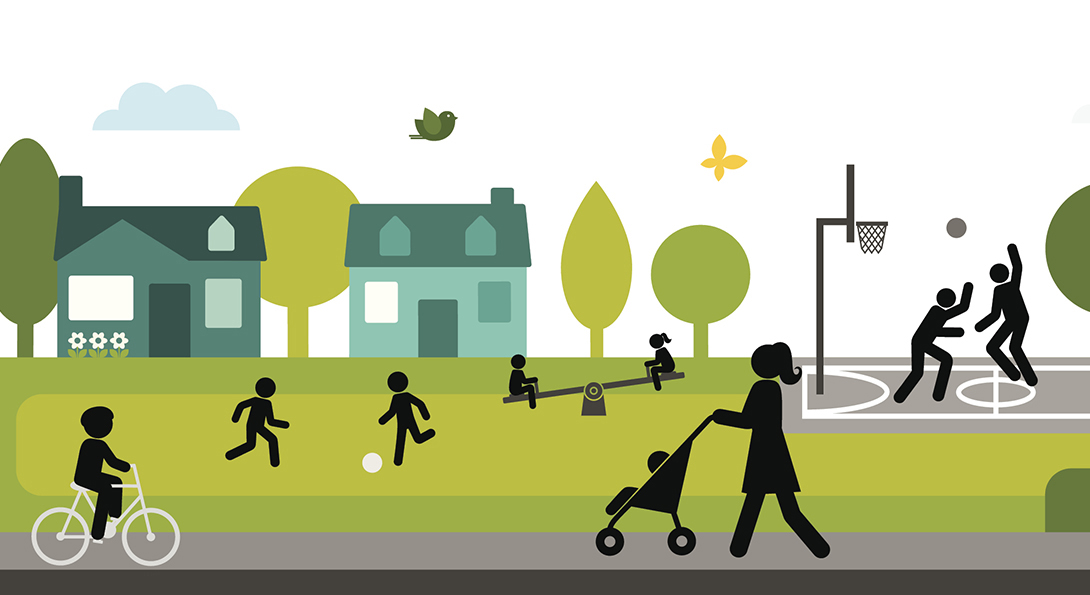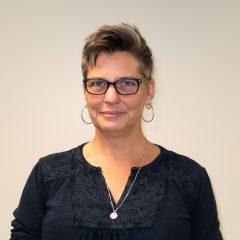Leadership for Change Learning Institute

Institute Details
The purpose of the Leadership for Change Learning Institute (Leadership Institute) is to provide training and technical assistance to build the leadership capacity of public health practitioners and their partners.
Following the completion of this Institute, fellows will be better equipped to create large-scale sustainable social changes to address issues within their communities.
The Leadership Institute is a partnership between the University of Illinois Chicago School of Public Health’s Policy, Practice and Prevention Research Center (P3RC), T. Bailey Consulting Firm, Inc., and Active Transportation Alliance. The Leadership Institute is supported by the Illinois Public Health Association, the Illinois Public Health Institute, and the Illinois Association of Public Health Administrators.
Course Details
Objectives
After completion of the Leadership Institute, fellows will be able to:
- describe the role of and define how Policy, Systems, and Environmental Change (PSE) can address population health challenges as opposed to individual or interpersonal behavior change approaches;
- describe the role of and define how the use of an advocacy lens can advance/support the PSE change process through the 6 phases for PSE Change Framework;
define and describe why multi-sector/cross-sectoral collaboration is important to address challenges in population health; - collaborate with diverse partners to identify and plan to address a community-based population health challenge using evidence-based PSE frameworks;
- and design an action plan with PSE goals and outcomes to address a community challenge, including identification of important facilitators and strategies for addressing local challenges to achieving PSE, and identification of roles and responsibilities for each partner.
Format
The Leadership Institute will utilize the 6 phases for PSE Change Framework developed by the P3RC. Instructors will lead fellows through an introductory and four 90-minute web-based sessions featuring expert guest speakers and discussion-based learning. After each session, fellows will engage in applied practice assignments and have the opportunity to consult with technical assistance coaches as they apply the PSE Change framework to an existing priority issue in their communities. The course will culminate in a celebratory sharing session highlighting accomplishments and finalization of PSE action plans.
Learning opportunities throughout the Leadership Institute will include:
- Introductory and celebratory sessions
- Web-based discussions
- Coaching support from experts
- Peer networking
Institute Facilitators

Melody Geraci has worked in the nonprofit sector for over 20 years in sectors including disability rights, government ethics and fair housing. She is currently Deputy Executive Director at Active Transportation Alliance which promotes walking, bicycling and public transit in the Chicago metro region. She holds bachelor’s and master’s degrees in Communications from the University of Illinois Chicago.
| Active Transportation Alliance

Tiosha Bailey MPH, DrPH is a results-oriented public health practitioner, with over 15 years of experience in key leadership positions. She currently serves as the Principal Consultant at T. Bailey Consulting Firm where she supports organizational leaders’ capacity to better understand and access data needed to enhance their decision making processes. Thus, increasing the pipeline of adaptive leaders and nimble organizations in the public health field. Dr. Bailey holds a Doctorate in Public Health, Master’s in Public Health, and Bachelor of Arts in Sociology from the University of Illinois at Chicago.
| T. Bailey Consulting Firm
Institute Schedule
| Module Names | Date | Time |
|---|---|---|
| Launch & Introductory Session | Tuesday, June 28, 2022 | 3:00 PM to 4:30 PM |
| Webinar 1 PSE Phase 1 | Tuesday, July 12, 2022 | 3:00 PM to 4:30 PM |
| Webinar 2 PSE Phase 2 | Tuesday, July 26, 2022 | 3:00 PM to 4:30 PM |
| Webinar 3 PSE Phases 3 & 4 | Tuesday, August 9, 2022 | 3:00 PM to 4:30 PM |
| Webinar 4 PSE Phases 5 & 6 | Tuesday, August 23, 2022 | 3:00 PM to 4:30 PM |
| Celebration Session | Tuesday, September 13, 2022 | 3:00 PM to 4:30 PM |
Requirements
The Leadership for Change Learning Institute is a six-month experience, and all participants should be aware of the specifics of their commitment. Please read the following section carefully. Fellows agree to participate fully in all aspects of the Leadership Institute and must:
- Identify a policy, systems, and/or environmental issue related to population health that your team hopes to address within your community. Your team will work to address this issue through an action plan designed to achieve PSE change. Alternatively, you may refine or expand an existing project related to policy, systems, and/or environmental change that is already in the planning or implementation phase. Below are a few examples of PSE issues or challenges that could be selected:
- Social or Structural Determinant of Health: Healthy & Safe Built Environments (Community and Built Environments)
- Provision of county or city public land (or previously vacant land) for green spaces or farmers’ markets.
- Revision of city zoning and development codes to require physical elements that enable and enhance walking, biking, and public transit access.
- Requiring all roadway projects to include elements that serve all users, such as walkers, bikers, older adults, children, people with disabilities, and more (Complete Streets policy).
- Social or Structural Determinant of Health: Food Systems
- Establishing healthy concession stand policies in local parks or recreation facilities.
- Creation of a certification process for school bake sales to ensure they are in line with school wellness policies.
- Increasing the availability of healthy food choices in restaurants or cafeterias.
- Increasing use of farmer markets for lower-income or minority communities through the inclusion of SNAP double value programs.
- Social or Structural Determinant of Health: Access to Care
- Creation of a plan to improve outreach to identified communities that may be experiencing increased adverse impacts and effects – e.g., Latinx community’s disproportionate cancer rates.
- Creation of coalitions to better integrate partnerships to address complex patient care by reviewing social conditions tied to health and health outcomes.
- Your team is welcome to select another issue or challenge that is tied to your community’s needs. We recommend reviewing your IPLAN priorities to identify areas of need or potential areas for expansion. Additional examples can be found at the Illinois Department of Public Health We Choose Health.
- Social or Structural Determinant of Health: Healthy & Safe Built Environments (Community and Built Environments)
- Commit to:
- Working collaboratively to address population health at multiple systems levels. Applicant teams should include cohort members from at least three different sectors – i.e. public health, nonprofit org, local/regional government rep, community member, subject expert, etc. Together, these organizations should demonstrate how they will cooperate to address social and structural determinants of health. Diverse teams should be no less than three individuals; no more than seven individuals will be allowed to participate in the ongoing sessions.
- Attending to at least 2 sessions per team. There will be a total of 6 sessions.
- Investing an estimated 90 minutes to 2 hours of preparatory work (reviewing presentations, readings, etc.) as well as some additional time working on team projects between meetings. Teams will be expected to complete activities that are started during each session before they return for the following session. Each session and post-session assignment will help organizations make progress on their action plans. At least two members per team must be present and actively participate in all meetings.
- Completing a PSE Action Plan that outlines a comprehensive strategy for carrying out a PSE initiative.
- Signing a letter of commitment prior to involvement in Leadership for Change Learning Institute.
- Participating in a six-month follow-up to share updates on the action plan.
- Participation in evaluation activities related to the Leadership Institute.
Funding Attribution
The Leadership for Change Learning Institute is supported by the Health Promotion and Disease Prevention Research Center cooperative agreement from the Centers for Disease Control and Prevention, U.S. Department of Health and Human Services (HHS) as part of a financial assistance award totaling $750,000. The contents are those of the authors and do not necessarily represent the official views of, nor an endorsement, by CDC/ HHS, or the U.S. Government.
This project is supported in part by the Health Resources and Services Administration (HRSA) of the U.S. Department of Health and Human Services (HHS) under grant number UB6HP31684 Public Health Training Centers ($924,899). This information or content and conclusions are those of the author and should not be construed as the official position or policy of, nor should any endorsements be inferred by HRSA, HHS or the U.S. Government.